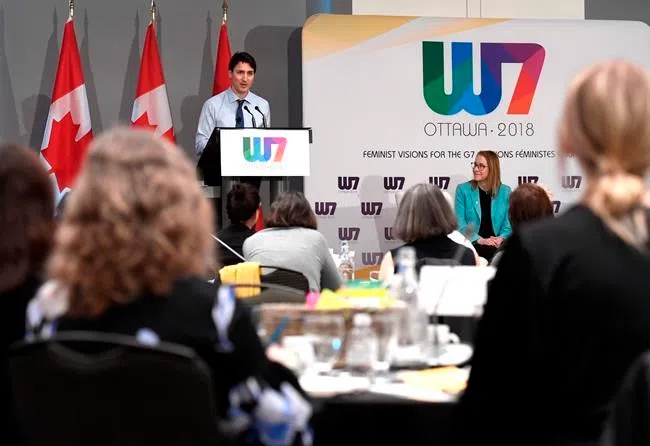
W7 summit leaders end conference hoping their recommendations not ignored by G7
OTTAWA — Feminist leaders from around the world who met this week in Ottawa say they have many nuanced ideas to address gender discrimination and inequality, but some are not convinced their recommendations will be heard at the upcoming G7 meetings.
Eleanor Blomstrom, co-director of the Women’s Environment and Development Organization, said she hopes W7 summit deliberations will help convince the G7 leaders to adopt a feminist approach to domestic and foreign policy when they meet in La Malbaie, Que., in June
“We know that G7 is a powerful space for decision makers and usually women are very much on the sidelines of that,” Blomstrom said.
“I think the W7 is a really important first step. We don’t know yet what it will actually mean but the fact we were able to come together and bring our own feminist power into this space was really important.”